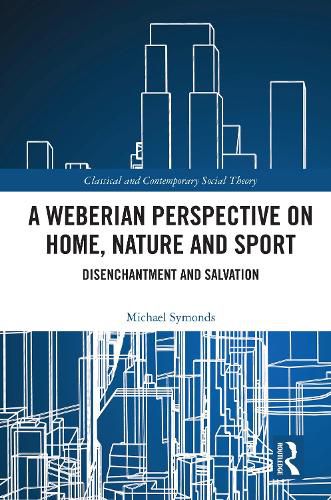Readings Newsletter
Become a Readings Member to make your shopping experience even easier.
Sign in or sign up for free!
You’re not far away from qualifying for FREE standard shipping within Australia
You’ve qualified for FREE standard shipping within Australia
The cart is loading…






This book extends Max Weber's theory of the value-spheres of modernity into wholly new areas, showing that the addition of home, nature and sport to Weber's own list of five spheres (economic, scientific/intellectual, political/legal, erotic and aesthetic) yields original insights into these aspects of modernity and modernity itself. It shows how each of these new spheres is able to create its own 'inner cosmos' of salvation from rationalised senselessness, just as Weber's 'irrational' spheres offer release from the grim reality of capitalism, the disenchanted universe and the bureaucratic state formed by the more 'rationalised' spheres. Drawing on a wide, cross-disciplinary range of sources, the author sheds light on the role of home in creating a sense of our enchanted past, of nature in helping to restore to the world a teleological meaning constructed from innocence and purity and of sport in imposing sense on the world, at least temporarily. A Weberian Perspective on Home, Nature and Sport: Disenchantment and Salvation will appeal to scholars of sociology and social theory with interests in classical sociological theory and the analysis of modernity.
$9.00 standard shipping within Australia
FREE standard shipping within Australia for orders over $100.00
Express & International shipping calculated at checkout
This book extends Max Weber's theory of the value-spheres of modernity into wholly new areas, showing that the addition of home, nature and sport to Weber's own list of five spheres (economic, scientific/intellectual, political/legal, erotic and aesthetic) yields original insights into these aspects of modernity and modernity itself. It shows how each of these new spheres is able to create its own 'inner cosmos' of salvation from rationalised senselessness, just as Weber's 'irrational' spheres offer release from the grim reality of capitalism, the disenchanted universe and the bureaucratic state formed by the more 'rationalised' spheres. Drawing on a wide, cross-disciplinary range of sources, the author sheds light on the role of home in creating a sense of our enchanted past, of nature in helping to restore to the world a teleological meaning constructed from innocence and purity and of sport in imposing sense on the world, at least temporarily. A Weberian Perspective on Home, Nature and Sport: Disenchantment and Salvation will appeal to scholars of sociology and social theory with interests in classical sociological theory and the analysis of modernity.